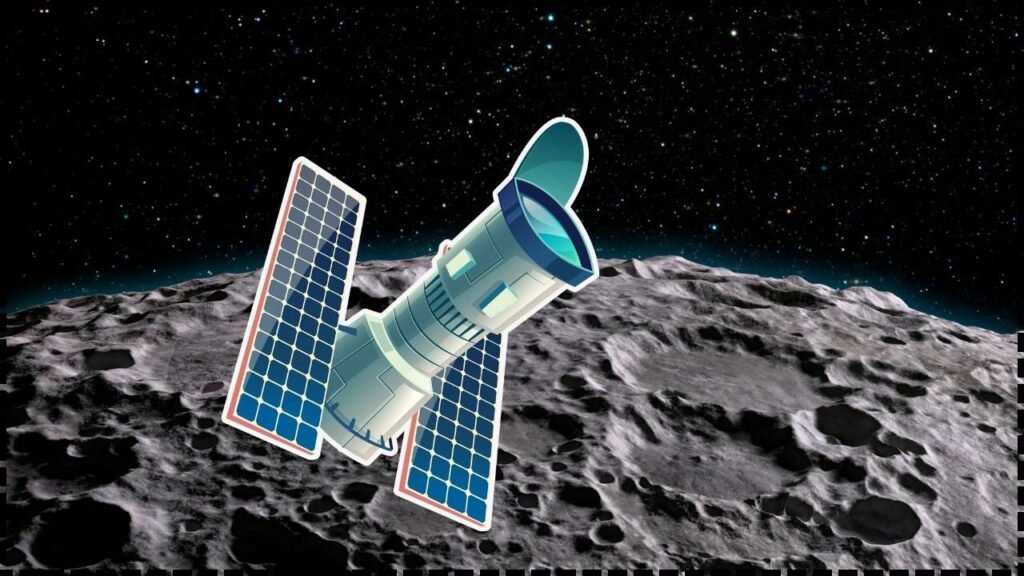Black hole firewall—just reading that phrase sparks a mix of awe and confusion, right? For decades, black holes were seen as quiet giants of the cosmos, peacefully pulling in everything that came too close. But now, scientists have dropped a bombshell: that silence might actually hide a violent truth. And yes, the black hole firewall is at the center of it all.
This latest discovery is not just another science update. It’s a game-changing shift in how we understand the very fabric of our universe. From challenging Einstein’s smooth space-time theories to shaking up quantum mechanics, this new finding is forcing experts to rethink everything we thought we knew about black holes—and what happens at the edge of one.
Black Hole Firewall Confirmed: What It Means
The black hole firewall theory has taken center stage in physics because it could finally bridge the gap between general relativity and quantum mechanics. Up until now, scientists believed that if you fell into a black hole, you’d cross the event horizon without even noticing it. Smooth, silent, and deadly, sure—but without fireworks.
Not anymore. This new research argues that the edge of a black hole might actually be a high-energy, violent barrier—a literal firewall—that burns up anything that dares to touch it. If proven true, this doesn’t just tweak existing black hole theories. It overhauls them. We’re now talking about black holes as engines of destruction, not just cosmic vacuums. It’s the kind of discovery that could lead to a whole new understanding of the universe itself.
Black Hole Firewall Overview
| Aspect | Explanation |
| What Is It? | A highly energetic boundary at a black hole’s event horizon |
| Breaks With | General relativity, which describes black holes as smooth at the edge |
| Agrees With | Quantum mechanics, which claims information can’t be destroyed |
| Supported By | Mathematical models and quantum information theory |
| Introduced In | 2012 as a paradox, recently backed by new research |
| Potential Impact | Could change how we view gravity, time, and the structure of space |
| Current Status | Gaining serious attention from the scientific community |
Firewall
When you hear the word “firewall,” you might think of computer security. But in the context of space, it’s something way more intense. The black hole firewall refers to an invisible wall of searing energy at the event horizon—the boundary beyond which nothing returns.
Here’s the twist: According to Einstein’s theory of general relativity, that boundary should be smooth. But quantum theory says information can’t just disappear forever. The firewall paradox was born from trying to balance those two ideas. If information falling into a black hole is destroyed, it violates quantum rules. If it survives, then Einstein’s idea of a smooth event horizon can’t be right.
The new study takes this paradox further, showing that a firewall might be not just a theoretical possibility, but a real, unavoidable feature of black holes. In simple terms? Crossing the edge of a black hole may be like slamming into a cosmic brick wall of radiation.
Conflict
This is where it gets spicy. The black hole firewall brings two of physics’ biggest players into a head-on collision: general relativity and quantum mechanics. Both are brilliant, but they don’t play well together when it comes to black holes.
Relativity says you can fall into a black hole and not feel much until it’s too late. But quantum mechanics says information is sacred—it can’t vanish, even inside a black hole. So, which is it?
This tension is what led to the creation of the firewall paradox. If the firewall really exists, it proves that one of these theories has a blind spot. That’s why this discovery matters—it pushes scientists to finally decide which parts of physics we keep and which we might have to rewrite.
Evidence
For a long time, the black hole firewall idea was seen as a clever but unprovable theory. Something for physicists to argue about, but not something real. That changed with a recent paper on arXiv—a leading platform for new scientific research.
The paper uses complex math and insights from quantum information theory to make a strong case: if quantum mechanics is right, then firewalls must exist. In fact, they might be the only way to preserve the rules of physics as we know them.
In short, this isn’t just talk anymore. It’s science backed by numbers, logic, and expert scrutiny. The firewall theory has officially moved from “weird idea” to “serious possibility.”
Impact
So, why should you care about something happening billions of light-years away? Because if the black hole firewall exists, it changes how we understand the entire universe.
Here’s what scientists now have to figure out:
- Where does the energy for the firewall come from?
- How does matter behave when it touches the firewall?
- Can this help us finally unify gravity with quantum physics?
These aren’t small questions. They’re the kind of puzzles that could lead to new technologies, new theories of space-time, and maybe even insights into the origins of the universe itself.
Future
The black hole firewall theory has sparked a fresh wave of curiosity among scientists. Originally proposed in 2012, it was seen as just another odd idea. But now, with actual math and quantum modeling behind it, researchers are taking it seriously.
What’s next? We’re looking at a mix of high-tech tools and creative thinking:
- Quantum simulations will model how firewalls might behave
- Space telescopes will look for indirect clues near black holes
- Gravitational wave detectors might help us spot energy bursts linked to firewalls
Bit by bit, we’re getting closer to answering one of the biggest questions in science: What’s really happening at the edge of a black hole?
FAQs
Is the black hole firewall theory confirmed by observation?
Does the firewall burn everything that enters a black hole?
How does this affect Einstein’s theory of relativity?
Why is information important in black hole physics?
Could this lead to a new theory of everything?
Final Thought
The confirmation of the black hole firewall marks a turning point in modern science. It doesn’t just reshape our understanding of black holes—it challenges everything we thought we knew about space, time, and the laws that govern reality. Whether you’re a space nerd or just someone fascinated by big ideas, this discovery is one to watch. Got thoughts or questions? Drop a comment below.

















